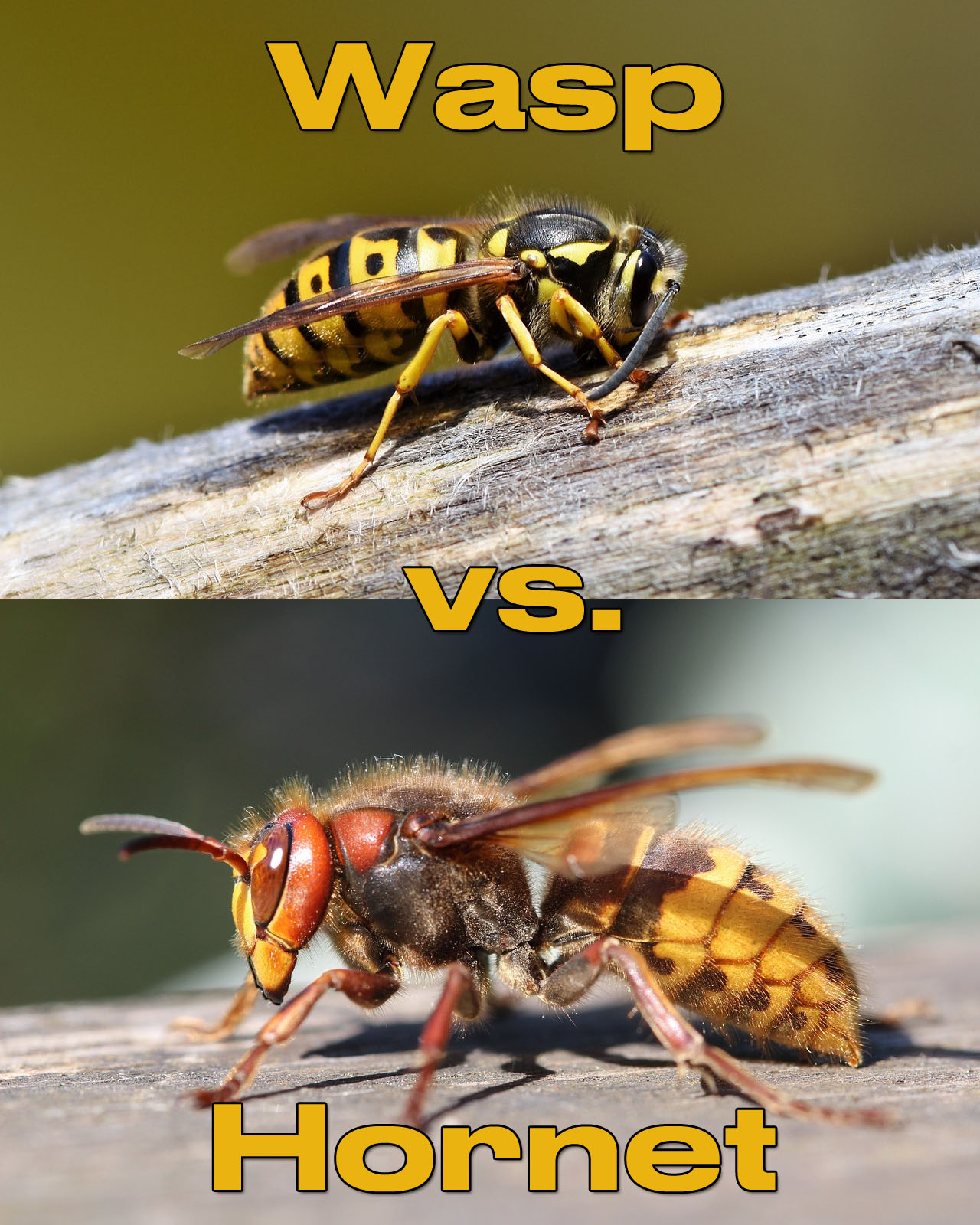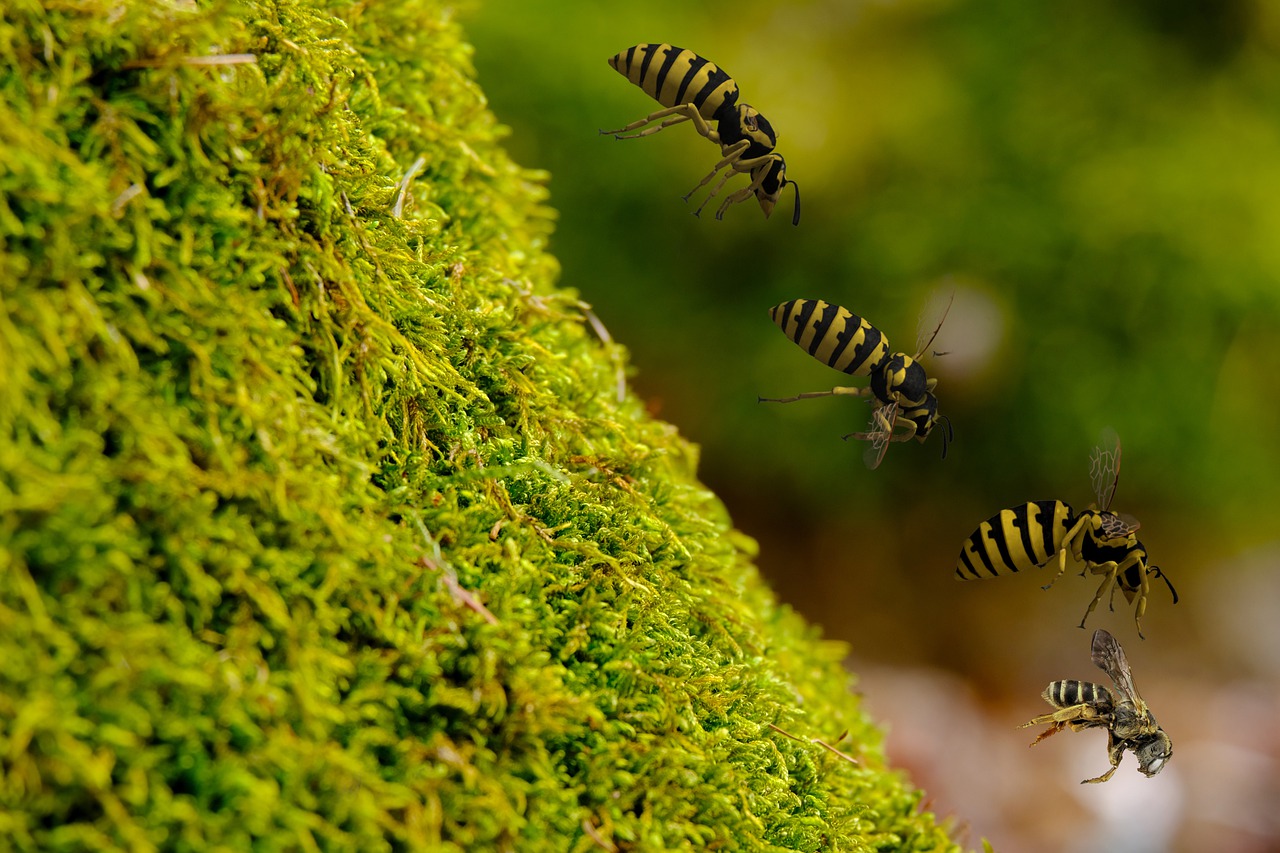Wasp FAQs
The Difference Between Wasps & Hornets
Hornets and wasps belong to the same family. Strictly speaking, the hornet is the largest species of wasp. Accordingly, there are many similarities between the two animals - but at least as many differences.
Wasps Vs Hornets: Appearance and Size Differences
- At first glance, hornets and wasps look very similar - hornets just look like larger wasps.
- While a queen wasp can grow up to 2.1cm in length, a hornet queen can reach a impressive 3.5cm.
- A worker wasp is a maximum of 1.7cm and up to 2.5cm in hornets.
- Male drone wasps grow to up to 1.9cm, whereas hornet drones can grow to 2.8cm.
- With both wasps and hornets, only the females have a sting. The males (drones) cannot sting
- The hornet is characterised by a brown-red head and body, while the abdomen is yellow. Wasps have eye-catching yellow-black stripes and the famous wasp waist
- The nests vary in size too. Hornets live in a colony that comprises 400 to 700 insects. In wasps, it can be anywhere from 3,000 to 4,000
- Adult hornets, like wasps, feed on tree sap and pollen, sometimes also on larvae. Unlike wasps, hornets are also predatory insects. This means that other insects such as wasps, flies, caterpillars or grasshoppers are on the menu
- It is often said: If you have a hornet's nest in your garden, you can enjoy your meal outside undisturbed because you won't be bothered by wasps. Therefore, hornets are particularly useful as natural pest killers. But wasps also have their purpose - namely, they serve to pollinate flowers<.li>

Behaviours of Wasps and Hornets
Hornets and wasps differ considerably in their behaviour. This can be seen, among other things, from the fact that humans come into contact with the less shy wasps much more often than with the larger representative.
- The behaviour of the two species is quite different. Hornets are often considered dangerous - not least because of their size. In fact, this wasp species is the more peaceful and placid of the two because it consistently avoids humans.
- Wasps are the more annoying and aggressive of the two. Typically they become more irritating from August onwards because there is a reduced amount of food available so they are likely to help themselves to your sweet treats
- Wasps are less afraid of us humans. They get aggressive when you hit them and then they attack
- Both animal species meticulously defend their nests. Getting too close to, or even damaging, a nest will put both wasps and hornets on high alert. The animals then send out hormones that also alert the other members of the colony and make them aggressive.
In this case, you should see them withdraw from the nest. Otherwise you risk getting stung.
- There is a common belief that hornet poison is more dangerous. However, that is not true. Wasp and hornet venom is very similar. The amount released by a sting is also almost identical. The stinger does not get stuck in either the hornet or the wasp.
- One similarity between the species is their wintering habits. Both the wasp and the hornet only overwinter the young queens. They fall into a deep sleep and wake up again in spring. Workers and drones die before winter
If you are stung, it is painful, but often nothing to worry too much about. It only becomes dangerous if you are allergic to the wasp or hornet poison.
Here is a brief overview showing how to identify a wasp vs hornet:
| |
Hornet |
Wasp |
| Colouring |
Head and trunk brown-red, abdomen yellow |
Conspicuous yellow-black stripes,
no hair |
| Body Shape |
Similar to the wasp, only bigger |
Characteristic "wasp waist" |
| Queen Size |
23 up to 35 mm |
Up to 20 mm |
| Worker Size |
18 to 25 mm |
11 to 14 mm |
| Sting |
Only females can sting |
Only females can sting |
| Nest Size |
400 to 700 hornets |
3000 to 4000 wasps |
| Food |
As wasps + other insects |
Tree sap, flower nectar and pollen, animal food primarily for larvae |
| Uses |
Prey on many insect pests in the garden |
Important for pollination |

